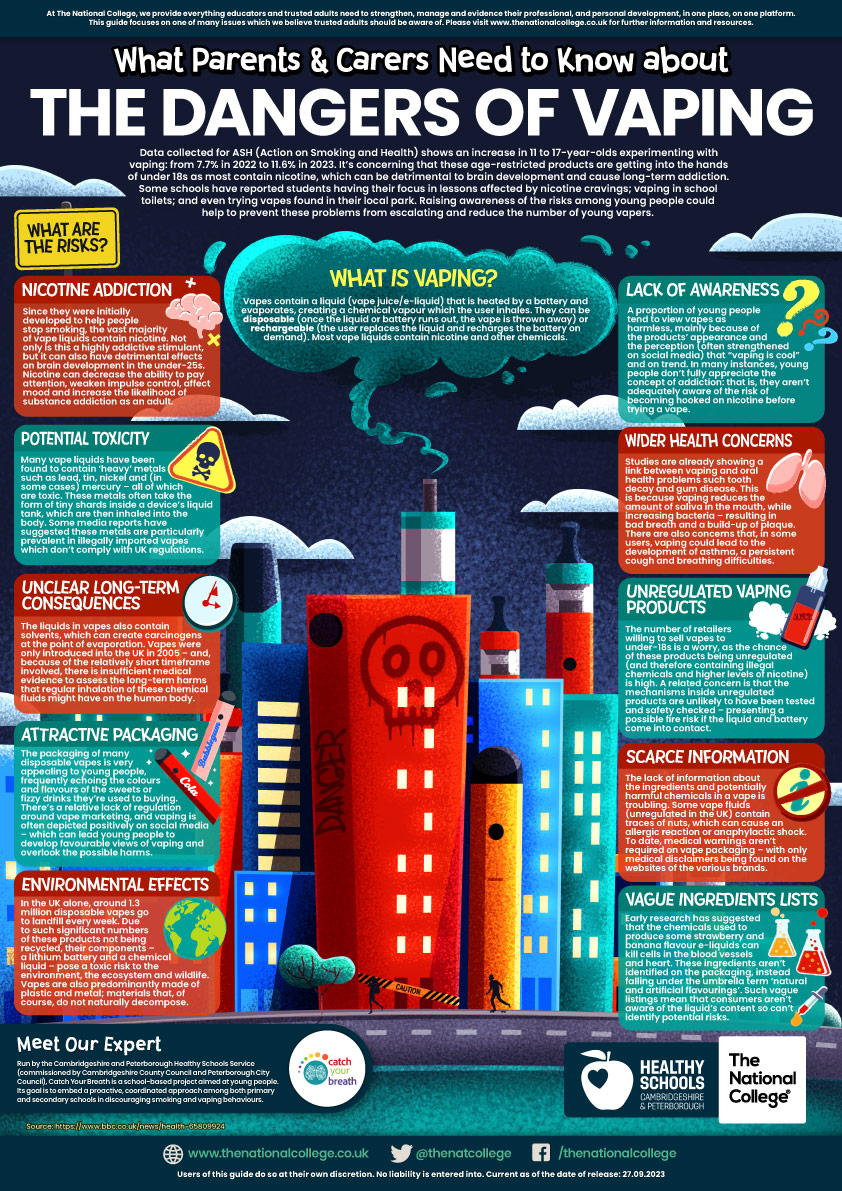








In the UK, the proportion of 11 to 18-year-olds who vape doubled between 2020 and 2022. That figure has continued to rise – a worrying trend that’s not exactly been countered by frequent portrayals of vaping as cool and fashionable on social media platforms.
Many young vapers simply aren’t aware of the habit’s potential pitfalls – but with risks including unregulated products, toxic ingredients and future nicotine addiction, there’s plenty for trusted adults to help children understand. This week’s #WakeUpWednesday guide brings you the essential info.

Duke’s Secondary has successfully completed a comprehensive online safety training
programme demonstrating its commitment to keeping children and young people safe online.
The Duke’s Secondary – has received a National Online Safety Certified School Accreditation
for its whole school community approach to protecting children in the online world.
National Online Safety is a multi-award winning digital training provider with extensive resources in online safety, developed in line with the Department of Education’s statutory requirements.
Its CPD accredited courses and educational resources support UK schools in educating the whole school community in online safety– including all senior leaders, teachers, all school staff and parents – on how to make the internet a safer place for children.
James Southworth, co-founder of National Online Safety, said: “Congratulations to everyone at Duke’s Secondary on becoming a National Online Safety Certified School. By completing our training programme, the school has shown its strong commitment to implementing an effective whole school approach to online safety.”
“It can be increasingly difficult for schools and parents to stay ahead of online threats and ensure both children and staff are safeguarded from potentially harmful and inappropriate online material. We arm schools with the knowledge they need to understand online dangers and react in the best way possible to any problems.”
WhatsApp is the most widely used messaging platform on the planet, with over two billion users (forecast to become three billion by 2025), across more than 180 countries. The majority of those people (70%) open the app at least once a day – but what exactly are they seeing? Contact from strangers, fake news and convincing scams are all among the service’s well-documented hazards.
According to Ofcom, WhatsApp is used by more than half of 3- to 17-year-olds in the UK (including one in three from the 8–11 bracket), despite its 16+ age restriction. If your child hops onto WhatsApp to stay in touch with friends or family, our updated guide to the service contains the key details you’ll need to support them in doing it safely.
When thinking about potential employment for the future, it is a great idea to stay up to date with what we refer to as local labour market information.
Please find an update from week commencing Monday 18th September below.
On this website we use first or third-party tools that store small files (cookie) on your device. Cookies are normally used to allow the site to run properly (technical cookies), to generate navigation usage reports (statistics cookies) and to suitable advertise our services/products (profiling cookies). We can directly use technical cookies, but you have the right to choose whether or not to enable statistical and profiling cookies. Enabling these cookies, you help us to offer you a better experience.